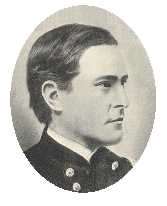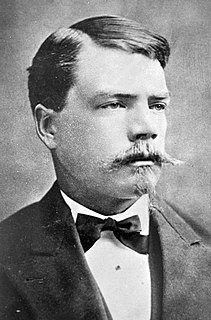Related Research Articles

The Battle of the Little Bighorn, known to the Lakota and other Plains Indians as the Battle of the Greasy Grass and also commonly referred to as Custer's Last Stand, was an armed engagement between combined forces of the Lakota, Northern Cheyenne, and Arapaho tribes and the 7th Cavalry Regiment of the United States Army. The battle, which resulted in the defeat of U.S. forces, was the most significant action of the Great Sioux War of 1876. It took place on June 25–26, 1876, along the Little Bighorn River in the Crow Indian Reservation in southeastern Montana Territory.

George Armstrong Custer was a United States Army officer and cavalry commander in the American Civil War and the American Indian Wars.

Little Big Man is a 1970 American Western film directed by Arthur Penn and based on the 1964 novel Little Big Man by Thomas Berger. While broadly categorized as a western, or an epic, the film encompasses several literary/film genres, including comedy, drama and adventure. The film follows the life of a white man who was raised by members of the Cheyenne nation during the 19th century. The film is largely concerned with contrasting the lives of American pioneers and Native Americans throughout the progression of the boy's life. It stars Dustin Hoffman, Chief Dan George, Faye Dunaway, Martin Balsam, Jeff Corey and Richard Mulligan.

Thomas Ward Custer was a United States Army officer and two-time recipient of the Medal of Honor for bravery during the American Civil War. A younger brother of George Armstrong Custer, he served as his aide at the Battle of Little Bighorn against the Lakota and Cheyenne in the Montana Territory. The two of them, along with their younger brother, Boston Custer, were killed in that overwhelming defeat of United States forces.

Marcus Albert Reno was a United States career military officer who served in the American Civil War where he was a combatant in a number of major battles, and later under George Armstrong Custer in the Great Sioux War against the Lakota (Sioux) and Northern Cheyenne. Reno is most noted for his prominent role in the Battle of the Little Bighorn, where he failed to support Custer's position on the battlefield, remaining instead in a defensive formation with his troops about four miles away. This event has since been a longstanding subject of controversy regarding his command decisions in the course of one of the most infamous defeats in the history of the United States military.
The Horsemeat March of 1876, also known as the Mud March and the Starvation March, was a military expedition led by General George Crook in pursuit of a band of Sioux fleeing from anticipated retaliation for their massacre of George Armstrong Custer's 7th Cavalry Regiment at the Battle of the Little Bighorn. Poorly rationed and hampered by muddy conditions, the soldiers eventually had to butcher and eat their horses and mules as they became lame or injured. The Horsemeat March ended with the Battle of Slim Buttes and the capture and looting of American Horse the Elder's richly stocked village.
Defeat in detail, or divide and conquer, is a military tactic of bringing a large portion of one's own force to bear on small enemy units in sequence, rather than engaging the bulk of the enemy force all at once. This exposes one's own units to many small risks but allows for the eventual destruction of an entire enemy force.

Two Moons (1847–1917), or Ishaynishus, was one of the Cheyenne chiefs who took part in the Battle of the Little Bighorn and other battles against the United States Army.

James Ezekiel Porter was one of General Custer's eleven officers killed at the Battle of Little Bighorn, also known as Custer's Last Stand, and Porter was among the first verified casualties of the historic battle alerting the world to the demise of Custer's group. According to several historians, Porter led troops in a defensive action at the Little Bighorn. Porter also served in the American South during the Reconstruction Era, where, according to a comrade, he respectably served "Ku Klux" duty while the 7th Cavalry was charged with eradicating the Ku Klux Klan and illegal distilling.
George Armstrong Custer (1839–1876) was a United States Army cavalry commander in the American Civil War and the Indian Wars. He was defeated and killed by the Lakota, Northern Cheyenne, and Arapaho tribes at the Battle of the Little Bighorn. More than 30 movies and countless television shows have featured him as a character. He was portrayed by future U.S. president, Ronald Reagan in Santa Fe Trail (1940), as well as by Errol Flynn in They Died With Their Boots On (1941).

Mark Kellogg was a newspaper reporter killed at the Battle of the Little Bighorn. Kellogg rode with George Armstrong Custer during the battle. His dispatches were the only press coverage of Custer and his men in the days leading up to the battle. As a newspaper stringer whose reports were picked up around the country, Kellogg is considered the first Associated Press correspondent to die in the line of duty.
Mo-nah-se-tah or Mo-nah-see-tah, aka Me-o-tzi, was the daughter of the Cheyenne chief Little Rock. Her father was killed on November 28, 1868, in the Battle of Washita River when the camp of Chief Black Kettle, of which Little Rock was a member, was attacked by the 7th U.S. Cavalry under the command of Lt. Colonel George Armstrong Custer. Mo-nah-se-tah was among the 53 Cheyenne women and children taken captive by the 7th Cavalry after the battle.

Robert Marshall Utley is an American author and historian who has written sixteen books on the history of the American West. He is a former chief historian for the National Park Service.
Fort Custer was established during the Indian wars in the Department of Dakota by the U.S. Army to subjugate the Sioux, Cheyenne and Crow Indians near present-day Hardin, Montana. The post was named for General George Armstrong Custer who died at the Battle of the Little Big Horn.
Neil Bancroft (1846–1901) was an American soldier in the U.S. Army who served with the 7th U.S. Cavalry during the Black Hills War. In 1878, he was one of 22 soldiers who received the Medal of Honor at the Battle of the Little Bighorn and who carried water "under a most galling fire" from the Little Bighorn River to the wounded soldiers on Reno Hill.

Frank Tolan was an American private in the U.S. Army who served with the 7th U.S. Cavalry during the Great Sioux War of 1876–77. He was one of twenty-two soldiers received the Medal of Honor for gallantry, volunteering to carry water to wounded soldiers on Reno Hill, at the Battle of the Little Bighorn on June 25, 1876.

Crow Scouts worked with the United States Army in several conflicts, the first in 1876 during the Great Sioux War. Because the Crow Nation was at that time at peace with the United States, the army was able to enlist Crow warriors to help them in their encroachment against the Native Americans with whom they were at war. In 1873, the Crow called for U.S. military actions against the Indigenous people they reported were trespassing into the newly-designated Crow reservation territories.

Little Big Man is a 1964 novel by American author Thomas Berger. Often described as a satire or parody of the western genre, the book is a modern example of picaresque fiction. Berger made use of a large volume of overlooked first-person primary materials, such as diaries, letters, and memoirs, to fashion a wide-ranging and entertaining tale that comments on alienation, identity, and perceptions of reality. Easily Berger's best known work, Little Big Man was made into a popular 1970 film by Arthur Penn. It has been called "Berger's response to the great American myth of the frontier, representing as it does most of the central traditions of American literature."

Frank Finkel was an American who rose to prominence late in his life and after his death for his claims to being the only survivor of George Armstrong Custer's famed "Last Stand" at the Battle of the Little Bighorn on June 25, 1876. Historians disagree over whether Finkel's claim is accurate; although he provided several details that would only have been known by someone who was at Little Bighorn, there are inconsistencies in his accounts of events.

Half Yellow Face was the leader of the six Crow Scouts for George Armstrong Custer's 7th Cavalry during the 1876 campaign against the Sioux and Northern Cheyenne. Half Yellow Face led the six Crow scouts as Custer advanced up the Rosebud valley and crossed the divide to the Little Bighorn valley, and then as Custer made the fateful decision to attack the large Sioux-Cheyenne camp which precipitated the Battle of the Little Bighorn on June 25, 1876. At this time, the other Crow Scouts witnessed a conversation between Custer and Half Yellow Face. Half Yellow Face made a statement to Custer that was poetically prophetic, at least for Custer: "You and I are going home today by a road we do not know".
References
- ↑ "Frederick Chiaventone". vetfriends.com. Retrieved 3 March 2015.
- 1 2 3 "Fred Chiaventone: Civil War Saturday". priztkermilitary.org. 28 April 2007. Retrieved 25 February 2015.
- 1 2 3 4 "Fred J. Chiaventone". mccarthycreative.com. Retrieved 26 February 2015.
- ↑ "A Road We Do Not Know". kirkusreviews.com. 20 May 2010. Retrieved 3 March 2015.
- ↑ "Moon of Bitter Cold". kirkusreviews.com. 20 May 2010. Retrieved 3 March 2015.
- 1 2 Historynet Staff (11 February 2011). "Wild West Magazine Wins Wrangler Award". historynet.com. Retrieved 25 February 2015.